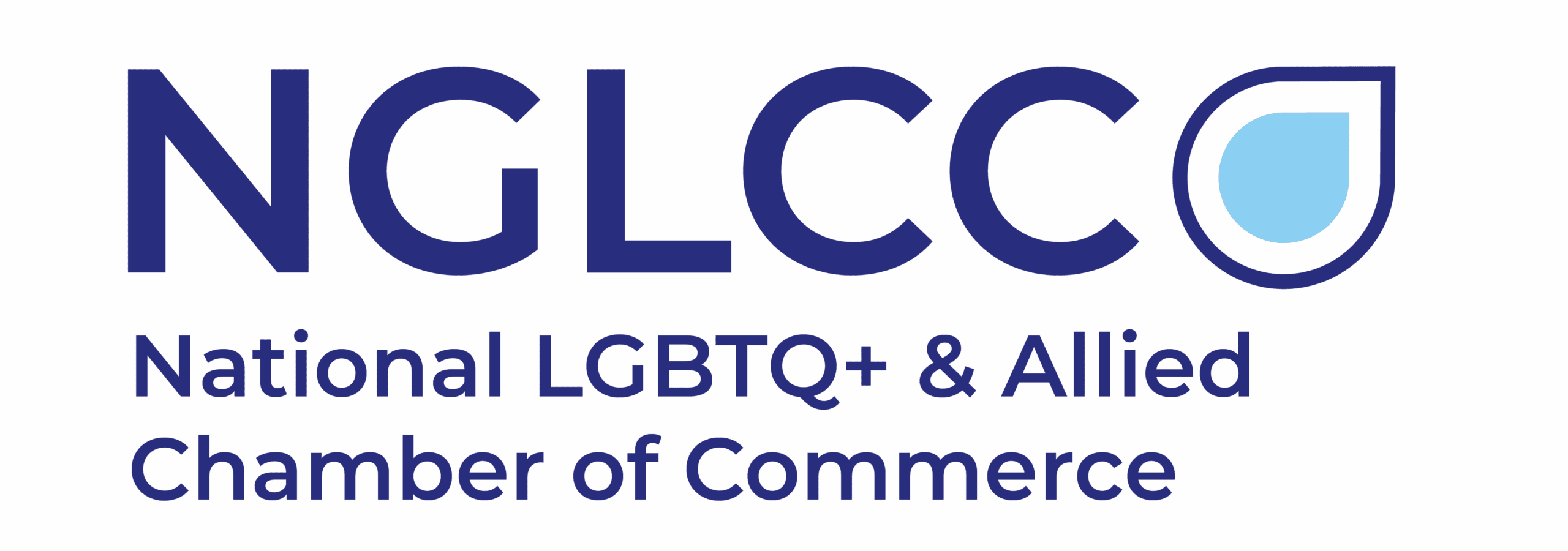Re: Reconsideration Request 14-44 (.GAY)
For the past four years, the National Gay & Lesbian Chamber of Commerce of the United States (NGLCC) has been a supportive partner of dotgay LLC and its efforts to bring a community-friendly .GAY domain to the Internet. Our support is part of a larger global network of community endorsements from over 100 countries around the world, including lesbian, gay, bisexual, transgender, queer, intersex, and ally (LGBTQIA) businesses and organizations. With a clear mission to address issues related to safety, visibility, and support for LGBTQIA people, dotgay is the only applicant for .GAY committed to building a trusted domain, community governance, and a 67% giveback from profits.
Founded in 2002, NGLCC is the business advocate and direct link between lesbian, gay, bisexual, and transgender (LGBT) business owners, corporations, and the U.S. government, representing the interest of more than 1.4 million LGBT businesses and entrepreneurs with the United States. Via the NGLCC GlobalTM division, we also promote the growth of small businesses abroad, recognizing entrepreneurship as the quickest and most effective path to broad-based economic advancement and empowerment of the global LGBT community. NGLCC, NGLCC Global, and our affiliates connect LGBT- owned and allied companies, multinational corporations, domestic and international affiliate chamber leaders and members around the world. We submit this letter through collaboration and endorsement from the Argentina Gay & Lesbian Chamber of Commerce, the Canadian Gay & Lesbian Chamber of Commerce, the Colombian LGBT Chamber of Commerce, and the Mexican Federation of LGBT Entrepreneurs.
NGLCC learned that ICANN has published a scorecard on dotgay’s Community Priority Evaluation (CPE) that rejects the widespread desire and need for a community operated .GAY. Despite dotgay receiving praise on a business model and registration policies developed through extensive engagement in the community, we are troubled by claims the application is “overreaching” to include segments beyond “male homosexual” as part of the “inclusive” community model for .GAY. The claim is not only shortsighted and misinformed, it highlights a double standard being applied to dotgay’s application that would be exposed with simple research confirming widespread use and understanding of “gay” to identify our varied segments, both within the community itself and as documented in mainstream media. Does the ICANN believe “gay pride” and “gay rights” are unique to homosexual males?
This signal from ICANN is one with which the NGLCC takes serious issue. Although NGLCC agrees with the fact that “gay” is not the singular term to encapsulate our community, it is also our understanding that singularity was not a requirement of CPE. “Well-known short form” or “abbreviation” was the documented criteria, with more points given for “corresponding to” than “closely describing the community.” NGLCC is concerned by ICANN accepting the EIU’s denial that the term “gay” meets these qualifiers, especially from a global perspective beyond just the English language. ICANN’s role, as we see it, is to acknowledge that “gay” meets the Nexus criteria of the Applicant Guidebook, so that valuable CPE points are not incorrectly or unjustly lost.
As a not-for-profit public-benefit corporation, ICANN has without question strayed from its mandate to serve the public interest in the case of .GAY. It is troubling that ICANN has accepted an under-researched, narrowly viewed, and unjust evaluation that disadvantages LGBTQIA people because of semantics that defy common use and understanding of the word “gay” around the world. Forcing an auction for .GAY with non-LGBTQIA interests is shortsighted, undermining, and not in the best interest of the LGBTQIA community.
By denying access and opportunity to those identifying as LGBTQIA because of a poorly executed evaluation and inconsistent application of the CPE guidelines, ICANN is sending a harmful message that fails to align with the fundamental goals of the new gTLD program.
